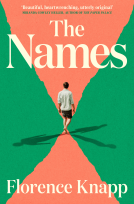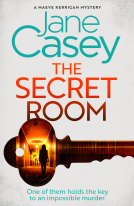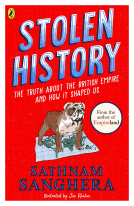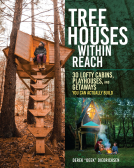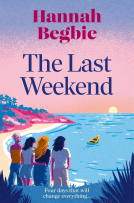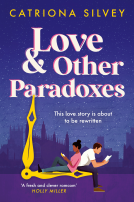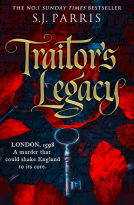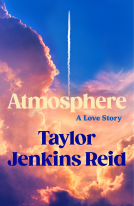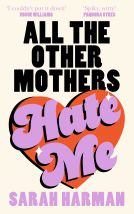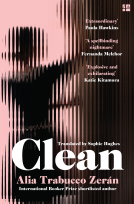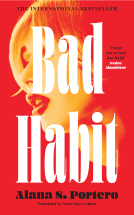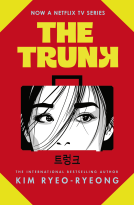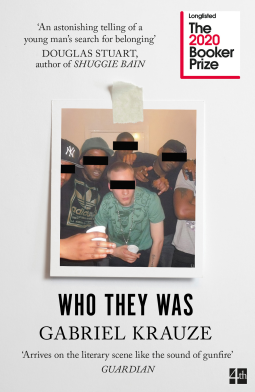
Who They Was
by Gabriel Krauze
This title was previously available on NetGalley and is now archived.
Send NetGalley books directly to your Kindle or Kindle app
1
To read on a Kindle or Kindle app, please add kindle@netgalley.com as an approved email address to receive files in your Amazon account. Click here for step-by-step instructions.
2
Also find your Kindle email address within your Amazon account, and enter it here.
Pub Date 3 Aug 2020 | Archive Date 6 May 2021
4th Estate | Fourth Estate
Talking about this book? Use #WhoTheyWas #NetGalley. More hashtag tips!
Description
Longlisted for the Booker Prize 2020
A Spectator Book of the Year
‘A literary rendering of the Top Boy generation… I cannot conjure another work which captures this culture in such depth – or with such brutal honesty – as only lived experience can tell ’ Graeme Armstrong, author of The Young Team
’An astonishingly powerful book’ Cathy Rentzenbrink, author of The Last Act of Love
This life is like being in an ocean. Some people keep swimming towards the bottom. Some people touch the bottom with one foot, or even both, and then push themselves off it to get back up to the top, where you can breathe. Others get to the bottom and decide they want to stay there. I don’t want to get to the bottom because I’m already drowning.
This is a story of a London you won’t find in any guidebooks.
This is a story about what it’s like to exist in the moment, about boys too eager to become men, growing up in the hidden war zones of big cities – and the girls trying to make it their own way.
This is a story of reputations made and lost, of violence and vengeance – and never counting the cost.
This is a story of concrete towers and blank eyed windows, of endless nights in police stations and prison cells, of brotherhood and betrayal.
This is about the boredom, the rush, the despair, the fear and the hope.
This is about what’s left behind.
Available Editions
| EDITION | Ebook |
| ISBN | 9780008375010 |
| PRICE | £4.99 (GBP) |
| PAGES | 304 |
Featured Reviews
 Neil G, Reviewer
Neil G, Reviewer
From jounwin.co.uk
"Gabriel Krauze grew up in London in a Polish family and was drawn to a life of crime and gangs from an early age. Now in his thirties he has left that world behind and is recapturing his life through writing. He has published short stories in Vice. Who They Was is his first novel."
Then from Vice as a preface to one of those short stories:
"Gabriel Krauze is a writer from South Kilburn, London, who has pioneered his own 'estate noir' genre – literary non-fiction, real events told in his own inimitable style."
Then from the Author’s Note at the end of the book:
"Who They Was is based on a specific period in my life. It’s about a world many people can only imagine from what they see in the news and on TV. It’s a world full of untold stories. This one has never been told because it is my story."
Told almost entirely in London slang and set in a very real London (you can follow the characters around on Google maps, if you want), this is a book that exposes a culture and lifestyle of which I know next to nothing. Or, in fact, nothing. I have lived my life in the English countryside, only occasionally visiting a city and just sometimes that city is London. Here, Krauze relates a period in his life lived in North London. As he says later in the author’s note, "everything in this book, in this story, was experienced in one way or another - otherwise I wouldn’t be able to tell it"
It’s hard to write about this book because there is a constant awareness that you are not discussing a fictional character: anything you say is making reference to a real person who experienced the events described in the book. It is a book that lives on the edge and often strays across a boundary into violence. There’s a sense of tension in the narrator’s life: he is very intelligent, working towards a university degree and highly regarded by his tutors, but it takes very little to provoke him and cause him to lose control. Through a lot of the story there is a sense of two different destinies pulling at Krauze, one calling him “up” to education and all that offers, and one calling him “down” to crime and drugs.
"It’s mad how I know this world of wickedness and doing mad tings that earn respect, and that same time I know a world of going to uni and trying to write a 3000-word essay on The Birth of Tragedy, and I also know the world that’s all about get up, go to work, go on holiday, buy this, buy that, tick this box, tick that box, box, tick, box tick, box tick. But the people in that uni world and in the box-ticking world, don’t know this one I’m in right now."
The further you get into the book, the more you begin to somehow relate to Krauze: you simultaneously understand what makes him react how he does and hope that he can fulfil his potential and somehow "save" himself. And that surprised me, because the life he describes is so completely different from the life I have lived.
The language in the book takes some getting used to. I learned a lot of new words as I read. The good news is that you can work out what most of the London slang words mean from their context. There are also lots of webpages you can turn to that will help you if you get stuck, although most of these tend to skip over the words that describe drugs, violence and sex and so are not a lot of help. But Krauze is also a poet at heart and there are beautiful sentences that suddenly leap out of page, especially when taken in the context of the gang culture that is being described.
So, you might read:
"Taz was one of them brers that when you walk through the ends with him he’d constantly be stopping to say wagwan to someone, olders hailing him up, next man on the block calling out yo Taz wa’um, and he’d raise a fist as he passed by and shout yes g mi deya."
And then suddenly
"Grey clouds like heavy sponges tug on the sky’s skin"
Or
"Black like a bee’s tongue with eyes like some far corner of space where even stars get lost."
Or
"… for the first time that night I can see stars stinging the petrol black sky"
All this makes for a very powerful reading experience that shows a whole new world that very few readers, I imagine, will have experienced for themselves. As the narrator says:
"It’s mad how you can live in a city and never see any of this. Or you just see faint smudges of it every now and again around the edges of your existence but even then you don’t fully believe in it, because even though we live in the same city, where I’m from and where you’re from could be two totally separate worlds."
 Neena B, Reviewer
Neena B, Reviewer
An autobiographical novel highlights the hidden war zones of London written almost entirely London-slang. From the beginning we are thrown into a world of robbery, drugs, violence and the struggle to survive in a North London.
30 year-old Krauze looks back on his life and tries to make sense of it.
The writing is a brilliant piece of energetic descriptive writing.
Readers who liked this book also liked:
Catriona Silvey
General Fiction (Adult), Mystery & Thrillers, Sci Fi & Fantasy
